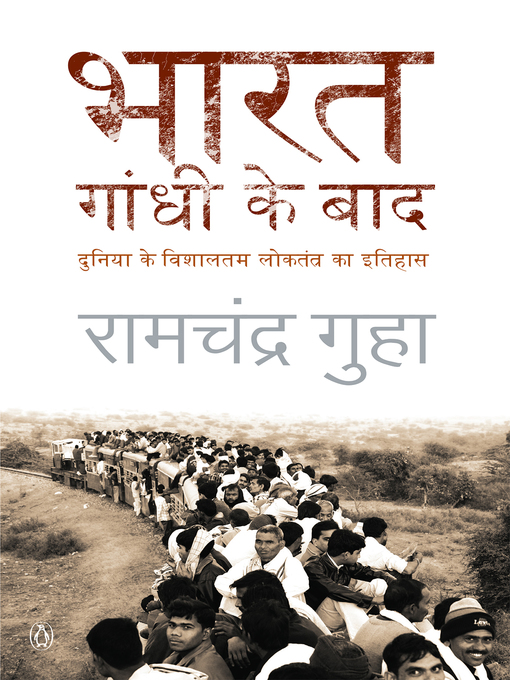Bharat, Gandhi Ke Bad is the Hindi translated edition of India After Gandhi, which documents the important events and happenings that occurred after India attained independence from British rule in 1947. Generally most the history textbooks on India cover events that from pre-historic times till the country gained independence from foreign rule, but this one takes the reader into the reality that lies hidden in the recent times. This was the era that has witnessed laying of the foundation of Indian democracy, where the fledging nation has survived several brutal attacks in the name of religion, caste, class and language. Historian Ramachandra Guha digs out a lot of facts and figures to explain the struggle and pain that the world's largest democracy has suffered after independence. He has also mentioned much details about some major protests and conflicts that haunted India after the British administrators left the country. Besides the negative turn of historical events, the book also records many of the accomplishments that the nation has made which does make every Indian proud. Even after having faced numerous terror attacks, conflicts and controversial issues, the republic of India has survived and remains united post-independence. The book presents some famous personalities in a very different light, when describing their personal and their political lives. Moreover, Guha also does mentions some lesser-known personalities from among tribals, workers and peasants who have played a major role in making India what it is today. The book is a result of extensive research and the lucid narration makes it an interesting to read that is easy to understand and relate to. Translator Sushant Jha has maintained the original crux of the text in this translated edition and has not attempted to overshadow what the author has actually explained in the original English version. India After Gandhi, the English version was picked as the Book of the Year by Outlook and The Economist and it went onto win the 2011 Sahitya Akademi Award. Following the popularity of this book, the author wrote a second volume, which also has a translated called Bharat: Nehru Ke Baad. About the author: Columnist, commentator and writer, Ramachandra Gua, born in 1958, is one of India's best historians who has documented recent history. Born and brought up in Dehradun, Gua, a graduate from Delhi University and IIM Calcutta has also taught at Yale, Stanford and University of California. Among the famous books that Gua has written are: India after Gandhi, The States of Indian Cricket and This Fissured Land: An Ecological History of India.
- Your Next Great Read!
- New eBook additions
- New teen additions
- New kids additions
- Most popular
- Available now
- See all
- Your Next Great Listen!
- New audiobook additions
- New kids additions
- New teen additions
- Most popular
- Try something different
- Available now
- Great Narrators
- See all
- Newly Added Magazines
- Crafts
- Sports
- Photography
- Technology & Gaming
- Hunting & Fishing
- Luxury
- Boating & Aviation
- Cars & Motorcycles
- Comics & Manga
- Teen Magazines
- Children's Magazines
- History
- See all

